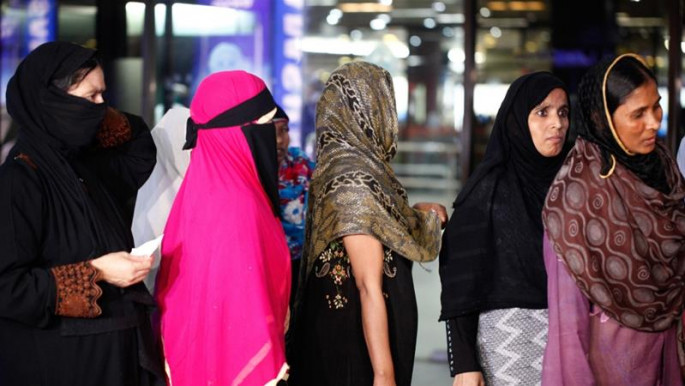“He came and raped me. And he continued raping me over the coming months until November. In the fifth month, he raped and hit me with the gun on the head and I fainted.”. These are the words taken from the testimony of Celestine, a Kenyan woman, sharing her traumatic experience when she worked as a migrant domestic worker in Saudi Arabia.
The sexual abuse Celestine experienced from one of her employers is just one of many inhumane and criminal treatment migrant workers can face in Saudi Arabia, especially women. Approximately one million women from Indonesia, the Philippines, Sri Lanka, and Kenya are working in Saudi Arabia, in many cases as domestic workers in private households. Testimony from migrant workers denounce the same kind of inhumane and ill-treatment, namely: exploitative labor conditions, unpaid salaries, denied benefits, intimidation, violence, and other sort of abuses.
These abuses are happening in such significant numbers mainly because migrant workers have almost no protection under the regime of the kafala system. This system, present in many Gulf and other Arab countries, defines the relationship between a foreign worker and their local ‘sponsor’, which is usually the employer. As the system falls under the Ministry of Interior and not the Ministry of Labor, migrant workers have no protection under Saudi Arabia’s labor law. Additionally, migrant workers can’t be granted the minimum standards from their country of origin, as no bilateral agreement has been created between Sri Lanka, the Philippines, or Kenya with Saudi Arabia.
Women working in domestic jobs are even more affected by this inequality of treatment, since they are usually living in accommodation provided by their employers and therefore at their employers’ mercy. Many testimonies from women have reported that their living conditions clearly lacked appropriate security and privacy for them, like doors that were locked only from the outside, doors without locks, doors with locks but no keys, and rooms without windows. A lot of these women also report situations of forced confinement imposed by their employers.
One can easily imagine the deep insecurity an individual put in such conditions can feel. These oppressive working conditions leave these women vulnerable to sexual abuses, rape, and contracting HIV/AIDS from their perpetrators. There are a lot of women with a story similar to that of Celestine. Indeed, these women can be confronted by serious sexual predators who do not hesitate to put heavy pressure on them by denying them all the rights a human being is entitled to. In the household in which they are working, they are often prevented from all sides to warn the police or even their families. Celestine escaped her traumatic condition by running away to the police to be repatriated to her country.
Some women explain that if they are impregnated by their perpetrator, the kingdom’s religious conservatism prevents them from asking for any help, as under Saudi Arabian law sexual relations outside of marriage are forbidden and illegal. Lydia who worked in Saudi explains that.
The trap that Saudi authorities build around these women is unimaginable. Even attempts to share their stories online and prevent others from experiencing the same abuse are highly restricted by Saudi authorities and sometimes even by migrants’ own country. Lydia exposed the bad treatment and physical abuses she was experiencing in Saudi Arabia from the recruitment office, she tried to expose them on social media, but then she related the following: “ There was so much mental torture, but I was willing to fight. I expected the embassy to come to my aid, but they did not. The Saudi office was angry I was posting online. The Kenya office is still mad at me”.
In 2021, the Ministry of Interior integrated some changes in the reform of the kafala system. These changes allow migrant workers to leave the country or switch jobs without their employer’s consent. However, in this reform, no mention of women migrant and domestic workers’ conditions has been made to improve their situation in the country.

